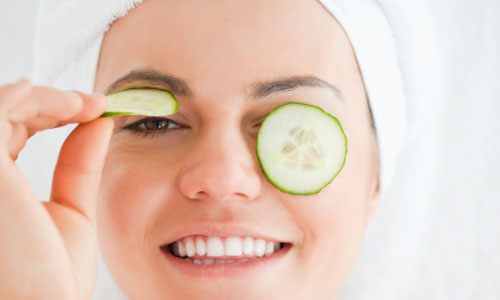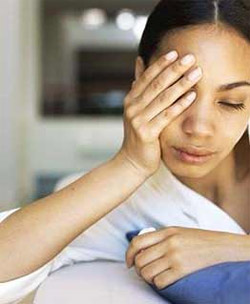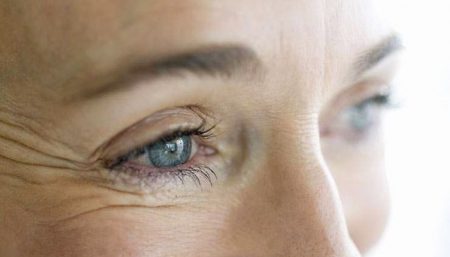Do the dark circles under your eyes still elicit stares and make you look much older. In recent years, the drumbeat against under-eye circles has grown louder. Blame it on unhealthy lifestyle, irregular sleep pattern, stress the list can go on.
So, to make sure you get rid of this problem, Read on…

The skin under the eyes is the thinnest on the body. The many blood vessels in this area can show through the delicate skin, contributing to the appearance of dark under-eye circles, especially if the vessels become dilated.
Dark under-eye circles begin in the capillaries, the tiny blood vessels that web the delicate skin around the eyes. The capillaries are so small that red blood cells sometimes have to line up, single file, to get through. Frequently, red blood cells get lost and wander into the surrounding skin. This isn’t a problem – it happens all the time – and your body has a mechanism to mop up these escapees. Enzymes in your body break down the red blood cells, including their hemoglobin (the molecule that gives them their distinctive red color). When hemoglobin is broken down, its remaining components have a dark blue-black color. Just like a bruise. So your dark under-eye circles are actually caused by leaky capillaries. It’s quite possible that capillaries all over your body are leaking small amounts of blood all the time.
Possible reasons for dark under-eye circles:
- The skin around the eyes is one of the thinnest, most delicate skin of your entire body. The capillaries are much closer to the surface of the skin there. Many people’s skin is not only thinner around the eyes, but also more translucent. The combination of capillaries near the skin’s surface and translucent skin makes this discoloration much more apparent. And that’s why you have those dark under-eye circles staring back at you in the mirror.
- Another, common cause is nasal congestion. When your nose is congested, veins that usually drain from your eyes into your nose become widened (dilated) and darker.
- Another cause of under eye circles is eyelid swelling during sleep. When you lie down, gravity can cause fluid to collect in your lower eyelids. This swelling may create the appearance of shadows below your eyes.
- In addition, dark circles can result from chronic skin conditions, such as atopic eczema. Dark circles can also run in families.
 Dark Under eye skin could be a result of allergic reaction caused by commercial beauty products, such as under-eye creams or mascaras.
Dark Under eye skin could be a result of allergic reaction caused by commercial beauty products, such as under-eye creams or mascaras.- Check out if your under-eye dark circles and puffiness are related to your monthly cycle. If the puffiness appears several days before your period, consider it a manifestation of PMS.
- Dark circles can be inherited. Check out if your mother or grandmother has had it. If yes, your under-eye puffiness is, most probably, a hereditary condition that runs in the family and there is really not much you can do about it.
- You are what you eat. The healthier you eat, the better your skin is going to look. Check out if you have been eating healthy, a diet based on fresh fruits, vegetables, nuts and legumes. If not you are in for trouble.
- Aging, can causes the skin to thin, can darken the eye area.
- Certain medications such as birth control pills can dilate blood vessels and leave you with dark circles.
Remedies
- If your under eye dark circles are caused because of enlarged blood vessels, double up on pillows at night to stop blood from building up under your eyes. In the morning, apply a cold compress for about five minutes to constrict the blood vessels. This should make your dark circles less noticeable.
- If PMS, is the cause. Try to use natural diuretics, such as green tea, and eliminate salty foods, most carbohydrates, and excess liquid from your menu about one week prior to your period.
- If an allergy is involved, find out what foods you are allergic to and eliminate them from your menu. The most frequently occurred allergies are to newfangled foods, such as commercial pasteurized milk from hormone-treated cows, processed grains, fruits and veggies with residual pesticides etc.
- Lack of sleep can make your skin appear paler, which allows blood vessels to be more visible through the skin, giving the appearance of bluish or dark circles. So make sure that you are getting in at least 7-8 hours of undisturbed sleep!
- Natural remedies to minimize under eye circles involves making use of cool cucumber slices, a cotton ball dipped in potato juice, crushed mint leaves, a teaspoon of tomato and lime juice, leaving castor oil overnight and last but not least cool teabags in order to help relieve stressed out eyes.
- Diet modification: For dark circles, you need a healthy dose of Vitamin C, Vitamin E, Vitamin K, iron and folic acid. So gorge on citrus fruits, berries, green leafy veggies, nuts, whole grains, avocado, seafood, beef, cheese, green tea etc. and do away with processed and greasy foods.
 Stay hydrated and drink 7-8 glasses of water daily.
Stay hydrated and drink 7-8 glasses of water daily.- Over-the-counter products may help diminish dark circles under eyes. Look for skin creams that contain vitamin C or K, alpha hydroxy acid and kinetin. Treatment for chronic and severe under eye circles is directed at the underlying cause, if known, and may include bleaching agents and laser therapy. Lasers can thicken the skin by increasing collagen production, so you are less likely to see veins.
- If you desire to hide the under eye circles, use a proper concealer. Test out the best colors at a department store counter. Choose concealer that’s a shade lighter than your foundation. And if your circles are very dark, go 2 shades lighter. Try not to use too pale a concealer as this will actually work the opposite way and emphasize the area. However, if the circles are of a more gray tone, then you may find a pink toned concealer works better in disguising them.
- Regular eye exercises can also help enhance blood circulation in and around the eye area. Yoga and pranayama help to reduce stress and thus remove dark circles.
To learn more about Best Eye Cream for Dark Circles? Click here
Disclaimer
The Content is not intended to be a substitute for professional medical advice, diagnosis, or treatment. Always seek the advice of your physician or other qualified health provider with any questions you may have regarding a medical condition.



